☰ Cardiff Scientific Society
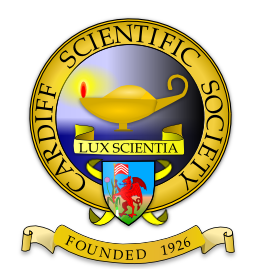

Small Changes: Major Differences
Professor Chris Wood
Entrepreneur, Honorary Professor Imperial College
5th October 2011
The sinister features that distinguish a cancer cell from the normal can be linked to what appear to be very small changes in the chemical and mechanical infrastructure of the cell, but the effects are profound and seemingly irreversible. Although these alterations in the chemistry have their epicentre in the cancer itself, they are also to be found in apparently normal cells some distance from the cancer. What is the significance of this 'field change' around the cancer? Sometimes the change is a recognizable function of the cell, a reversion to a foetal state or cell division that has become fixed in the 'on' position. What we don't know is if these chemical alterations in and around the cancer are the cause of the disease or secondary to some other factor. In this lecture I will look at some of these chemical changes and their possible significance when they occur in cell types other than the one from which the cancer has originated. In addition, small changes in the chemistry of the drugs we use to treat cancer can have a profound and beneficial influence on treatment.
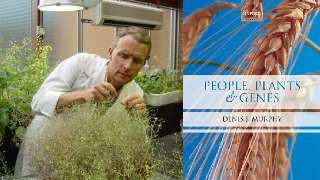
People, Plants and Genes. The Story of Crops and Humanity
Professor Denis J. Murphy
University of Glamorgan
19th October 2011
During the past decade we have made significant advances in understanding how the genetics of people and plants have interacted in a way that has shaped our modern world. After almost 200,000 years as hunter-gatherers, about 10,000 years ago people around the world suddenly became farmers.
Within a few millennia they had domesticated almost all the crops and livestock species that we still rely on for our food today. In this talk I will examine the interaction of genomes and environment and its role in creating the farming based agro-urban culture that we live in today. I will also look towards the future and the challenges we face feeding a growing human population in an era of climate change that may be comparable to the one that helped usher in the farming revolution 10,000 years ago.
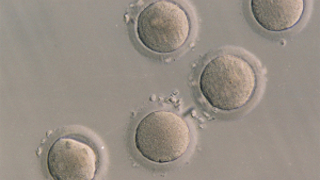
The Sir Martin Evans Lecture: Nuclear Reprogramming by Eggs and Oocytes - a Route to Cell Replacement
Professor Sir John Gurdon
Gurdon Institute, Cambridge University
2nd November 2011
About half a century ago, nuclear transfer experiments in frogs eggs established the principle that nearly all somatic cells have the same genome. These experiments showed that it is possible to generate multipotent embryo cells starting with nuclei from differentiated cells combined with enucleated, unfertilized eggs. Five years ago, induced pluripotency by transcription factors was discovered and has revolutionized the field of regenerative medicine. Any route by which cell replacement from adult cells is achieved depends entirely on the use of embryonic stem cells as discovered by Martin Evans in 1981. Current work in the nuclear reprogramming field aims to identify the molecules and mechanisms by which embryonic cells can be derived from adult cells. While induced pluripotency seems to involve stochastic processes, nuclear reprogramming by eggs and oocytes appears to be a deterministic process. Nuclear reprogramming has the prospect of being useful for drug testing and possibly for certain kinds of cell replacement therapy.
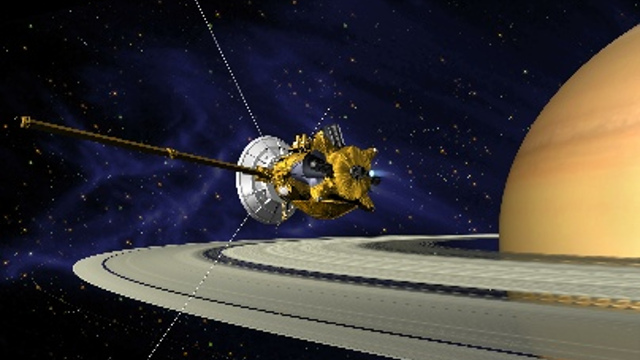
Cassini-Huygens mission at Saturn and Titan and future outer planetary missions
Professor Michele Dougherty
Imperial College, London
16th November 2011
The international NASA/ESA Cassini-Huygens space mission which is presently in orbit around the Saturn/Titan system is providing us with spectacular results and discoveries. I will describe some of the results we've obtained so far and will reveal how the inter-disciplinary nature of the suite of instruments on board the spacecraft allows us to interpret the observations. The discovery of a plume/dynamic atmosphere on Saturn's small icy moon, Enceladus, is the best example of such analysis. Recent results concerning Saturn's interplanetary magnetic field will also be described as well as observations from its large moon, Titan, the only moon in the solar system with a dense Earth-like atmosphere. The international collaborations arising from this mission are focusing plans for a future mission to the Jupiter system, with a focus on two of its moons, Europa and Ganymede, with potential water oceans beneath their surfaces.

Numbers, Numbers Everywhere, and None you can Trust - Not Yet!
Professor Harold Thimbleby
Swansea University
30th November 2011
We enter numbers into calculators and think they work. Nurses enter numbers into drug infusion pumps to give patients morphine. Pilots fly planes descending at 3.3 degrees. This talk shows that everywhere we look numbers are unreliable. We propose some solutions and suggest that we can halve the death rate from number-based overdoses. Oh, and reduce financial fraud.

The Art and Science of Endocrine Surgery
Professor Malcolm H. Wheeler
Formerly University Hospital of Wales
14th December 2011
Art, both visual and technical, complement medical science and the practice of surgery. The relationship is well illustrated in the speciality of endocrine surgery, dealing with disorders of the ductless glands. Glands, which include the thyroid, parathyroid, adrenals, pancreas and gastrointestinal tract, secrete into the circulation hormones which regulate and control a wide range of physiological functions. Endocrine disease may be characterised by deficiency or excess of hormone secretion, the latter frequently associated with organ enlargement or tumour development. Many of these conditions are amenable to curative surgical intervention.
Prior to surgery, accurate diagnosis and tumour localisation are mandatory, frequently requiring close cooperation with biochemists, endocrinologists, radiologists, nuclear medicine specialists, pathologists and often other basic scientists. Recently, virtual reality techniques have been employed to facilitate pre-operative planning in complex cases. Further impetus to the speciality has been derived from the remarkable explosion of endoscopic and minimally invasive surgical techniques.

Modelling Chemistry; the Computational Revolution
Professor Peter J. Knowles
Cardiff University
11th January 2012
Since the times of Kepler and Newton, scientists have sought to rationalize and understand the physical world by fitting theories and mathematical models to observation. It has only been in recent years, however, that the range of applicability of such modelling has expanded from simple problems to the complex systems of chemistry and biology, which traditionally were regarded as purely experimental sciences. Thanks to the invention of the high speed digital computer, modelling is now an indispensable tool in such areas as materials science, rational drug design and environmental chemistry, and can often provide answers that are inaccessible or uneconomic in the experimental regime. A further revolution has been the impact of computers in information management and visualization, allowing scientists to understand and innovate in new ways. This lecture explores the basis of modelling and its relationship to theory and experiment and traces the impact of information technology on the physical sciences. Throughout, the ideas are illustrated with demonstrations that show how visualization methods have helped to solve scientific problems.
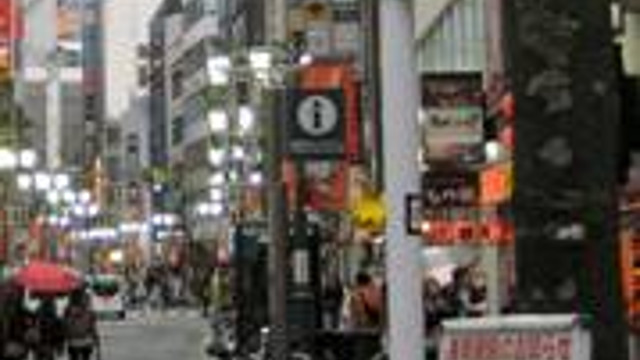
The Psychology of Climate Change: How can we involve the Public?
Dr Lorraine Whitmarsh
Cardiff University
25th January 2012
Climate change is an issue which politicians and scientists tell us demands action at all levels of society. Yet while the public knows about climate change and most express concern about it, few are taking action to tackle it and a sizeable minority remain sceptical about the need for action at all. What factors influence perceptions of the issue? What roles do experience, language, values, norms and context play? And how do news events and personal experiences shape how we see it? This lecture uses psychological theories and studies of public engagement to examine how and why we respond to climate change in the ways we do, and how we might design more effective ways of engaging the public in tackling the issue.
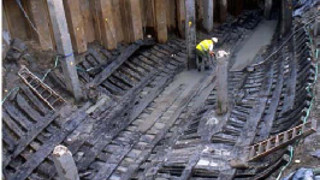
The Newport Medieval Ship
Mr Nigel Nayling
University of Wales, Lampeter
8th February 2012
The Newport Ship represents the most substantial discovery of medieval shipping in Britain in the modern era. Following the ship's rescue excavation in 2002, the ship's timbers, associated artefacts and environmental remains have been investigated using a wide range of techniques including 3-dimensional capture technologies and analytical archaeological science. The nature of this unique archaeological discovery will be described before focusing on the scientific techniques being employed to preserve, understand and analyse a rare example of, arguably, the most complex machine constructed by medieval societies - the ocean-going ship.

The Lord Phillips Memorial Lecture: Alcohol and Violence
Professor Jonathan Shepherd
Cardiff University
22nd February 2012
Violence is a leading cause of death and injury among youth and young adults worldwide and alcohol is an important contributor. Drawing on research carried out by the Cardiff University violence and society research group over the past 20 years, this lecture sets out the causes of violence in the context of alcohol misuse, how violence affects survivors' physical and mental health and how violence can most effectively be prevented. The lecture will also describe new health orientated violence measures which have clarified national violence trends, how this programme of research has changed violence prevention policy and practice and made Cardiff the safest city of its size in the UK, and how a pioneering police science institute has been developed.

Phoenix from the Ashes: the Origin of the Chemical Elements
Professor Mike Edmunds
Cardiff University
21st March 2012
When the Universe was 300,000 years old, the only chemical elements with significant abundance were hydrogen, helium and a small amount of lithium. All the atoms of all the other elements in the Periodic Table have been synthesised during the 13.7 billion years since that time. Research in physics and astronomy over the last 64 years has allowed us to identify the nuclear processes involved, including the importance of the humble neutron in the manufacture of the heavier elements. We now have a good picture of the astronomical sites where elements such as the carbon, nitrogen, oxygen and iron in our bodies were made, including violent supernova explosions. It is a picture that appears almost, but not quite, complete.

Fascination of Plants Day Cardiff
Dr Karl Harrison
Cranfield University
18th and 19th May 2012
The first international "Fascination of Plants Day" will be launched around the world. The goal of this activity is to get as many people as possible around the world fascinated by plants and enthused about the imporrtance of plant science for agriculture, in sustainably producing food, as well as for horticultture, forestry, and all of the non-food products such as paper, timber, chemicals, energy, and pharmaceuticals.
Programme: Exhibitions and tours of the National Museum Cardiff, the Plant Science labs Cardiff University and the Bute Park Education centre.
Evening discussion "Global Food Security"